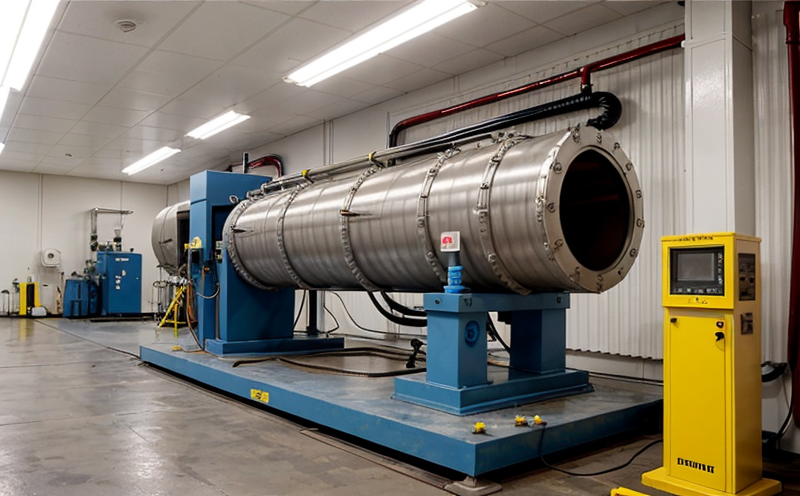ISO 16967 Trace Element Analysis of MOX Fuels
The ISO 16967 standard is a crucial protocol used in nuclear fuel testing to ensure precise determination of trace elements within Mixed Oxide (MOX) fuels. MOX fuel is a critical component in many nuclear reactors, and its quality directly impacts the safety, efficiency, and performance of these facilities.
Trace element analysis plays an essential role in maintaining the integrity of MOX fuels. These fuels are composed of uranium dioxide (UO2) and plutonium dioxide (PuO2), with small amounts of other actinides like neptunium or americium. Trace elements include lanthanides, actinides, and other minor components that can influence the fuel's behavior under irradiation conditions.
The ISO 16967 standard ensures accurate quantification of these trace elements by specifying detailed procedures for sample preparation, instrumental analysis, data processing, and reporting. This standard is particularly important because it allows laboratories to achieve consistent results across different facilities and countries, enhancing the reliability and comparability of fuel quality assessments.
Sample preparation involves grinding the MOX pellets into a fine powder using specific sieves and ensuring homogeneity through thorough mixing. The prepared samples are then analyzed via various analytical techniques such as Inductively Coupled Plasma Mass Spectrometry (ICP-MS), which is recognized for its high sensitivity and accuracy in detecting trace elements.
The standard specifies the use of reference materials to calibrate instruments, ensuring that measurements are traceable to international standards. It also defines acceptance criteria based on repeatability limits and reproducibility requirements, allowing laboratories to verify their results meet specified tolerances.
Understanding the role of trace elements in MOX fuel is critical for optimizing reactor performance and safety. For example, certain lanthanides may influence the thermal conductivity of the fuel, while actinides can affect its reactivity under different irradiation conditions. Accurate measurement ensures that these parameters are optimized during fuel fabrication processes.
ISO 16967 also supports research and development efforts by providing a robust framework for evaluating new materials or modifications to existing MOX fuels. This standard helps researchers understand how changes in composition could impact the overall performance of nuclear reactors, thereby enabling informed decisions about fuel design and usage.
In summary, ISO 16967 provides a comprehensive approach to trace element analysis that is indispensable for ensuring high-quality MOX fuels. By adhering strictly to this standard, laboratories can deliver reliable, consistent results that contribute significantly to the safe and efficient operation of nuclear power plants worldwide.
Industry Applications
Nuclear fuel cycle facilities: Ensuring compliance with international standards for fuel quality.
R&D laboratories: Evaluating new materials or processes in MOX fuel fabrication.
Regulatory bodies: Providing data necessary for licensing and safety assessments.
These applications highlight the importance of ISO 16967 in maintaining robust quality control measures across various stages of nuclear fuel production and use.
Eurolab Advantages
Comprehensive expertise: Our team consists of highly qualified professionals with extensive experience in nuclear fuel testing.
State-of-the-art equipment: We utilize advanced instrumentation to ensure accurate and precise results.
Prompt turnaround times: Your samples are processed efficiently, ensuring timely delivery of results.
Eurolab's commitment to excellence in nuclear fuel testing is reflected in our consistent adherence to international standards and rigorous quality assurance practices. We pride ourselves on delivering reliable data that supports informed decision-making for stakeholders involved in the nuclear industry.
Why Choose This Test
International recognition: ISO 16967 is widely accepted as a benchmark for trace element analysis.
Consistency and reliability: Ensures that results are consistent across different laboratories and countries.
Supports compliance: Helps facilities meet regulatory requirements related to nuclear fuel quality.
Choosing ISO 16967 trace element analysis for MOX fuels ensures your facility meets the highest standards in nuclear fuel testing, thereby enhancing safety and performance. The test's accuracy and precision are critical components of maintaining reliable nuclear power generation.





